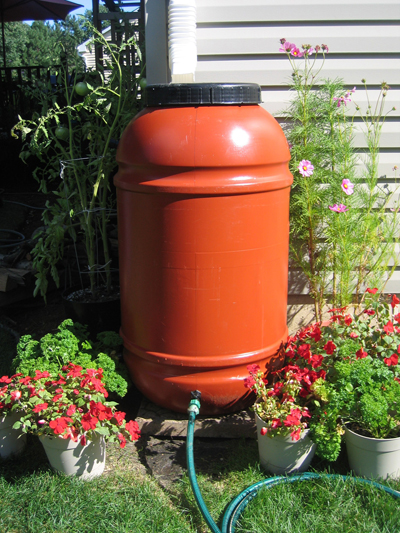Sustainable Development
- Trees
- Ecological Events
- Ecogestures
- Environmental Programs
- The unwanted...
- Environmental Publication
|
April 22, 2024 Please note that rain barrels are currently out of stock. For information, please contact the Green Line at [email protected] or by phone at 514 630-2748. |
Rain barrels
Recycling rainwater is eco-responsible!
Would you like to reduce your household water consumption? Rainwater recovery is a simple, economical and ecological way to maximize water use.
Why recycle rain water?
- to water gardens and lawns
- to wash cars
- to fill swimming pools
- to lower your water bills
- to reduce the high costs of drinking water treatment
- to preserve this free natural resource rather than discharging it into the wastewater system.
For more information on the use or purchase of a rain barrel, please contact the Green Line at [email protected] or by phone at 514 630-2748.


